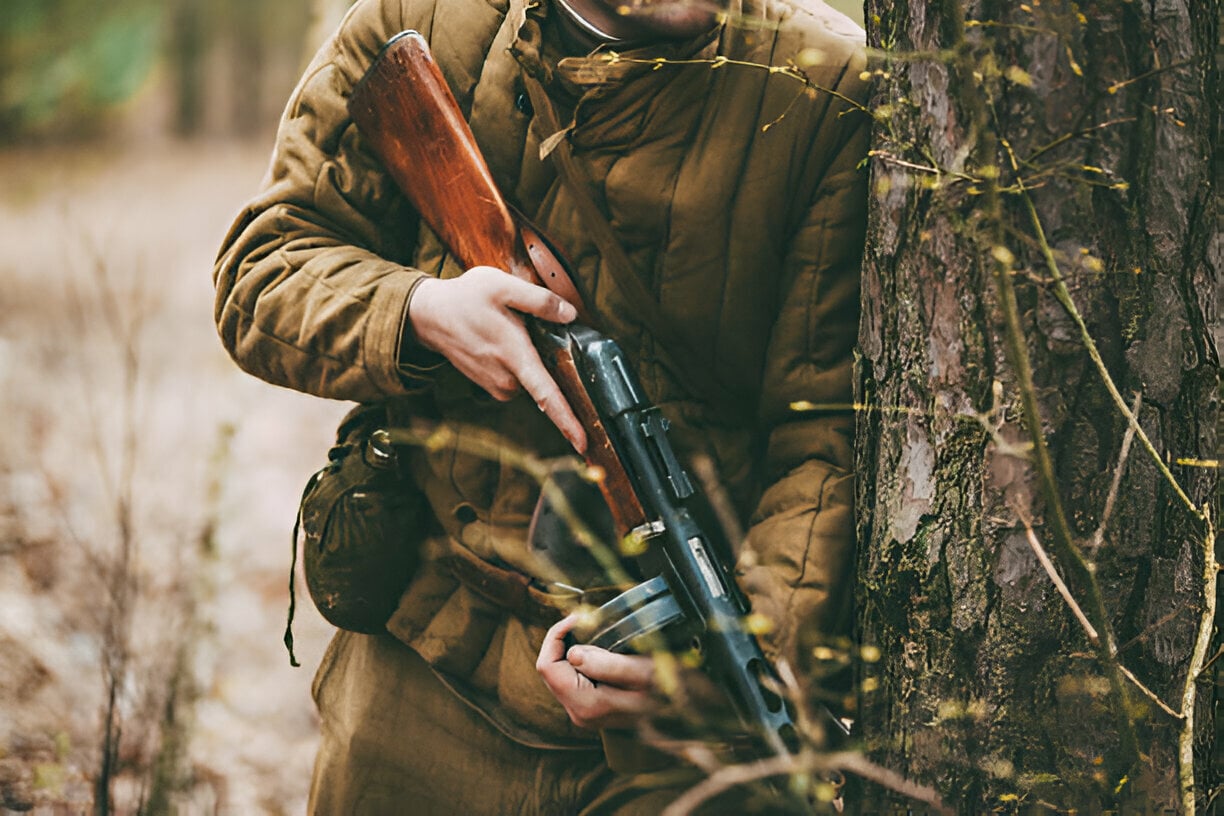Norway is a dream destination for hunters, offering vast wilderness, diverse game species, and a rich hunting tradition. However, for foreign hunters, understanding the legal requirements, costs, and how to prepare for a hunt in Norway is crucial for a smooth and successful experience. This article covers the appeal of hunting in Norway, the legalities involved, how to register as a hunter, and the costs associated with hunting for foreigners.
Table of Contents
Why Norway Attracts Foreigner Hunters?
Norway offers an exceptional hunting experience with its diverse wildlife, stunning landscapes, and rich hunting traditions. The country’s vast forests, rugged mountains, and remote tundras provide hunters with a variety of environments and species to pursue.
- Diverse Wildlife: Norway is home to a range of game species, including moose (the “king of the forest”), red deer, reindeer, and small game like grouse and hare. The abundance of wildlife and varying hunting opportunities make it a top destination for hunters of all levels.
- Majestic Landscapes: The country’s natural beauty enhances the hunting experience. Norway’s forests, mountains, and fjords offer not only challenging terrain but also breathtaking views. Whether hunting in dense woods or high-altitude plateaus, the scenery adds to the thrill of the hunt.
- Ethical and Sustainable Hunting: Norway prioritizes sustainable hunting practices through strict regulations that ensure healthy wildlife populations and the protection of natural habitats. Hunters in Norway follow ethical guidelines that promote responsible hunting and wildlife conservation.
Hunting in Norway isn’t just about the game; it’s an immersive experience in one of the most beautiful and unspoiled environments in the world.
Legal Requirements for Foreign Hunters in Norway
Hunting in Norway is regulated by strict laws to ensure the conservation of wildlife and the safety of hunters. If you’re a foreigner looking to hunt in Norway, there are several legal requirements and steps you must follow to ensure you’re hunting legally and responsibly. Here’s an overview of the key legal requirements for foreign hunters:
1. Firearm Import Permits
If you’re bringing your own firearm to Norway, you must first apply for an import permit. This is required to legally transport and possess firearms in the country. To obtain the permit, you’ll need to provide:
- Proof of ownership and registration of the firearm in your home country.
- Documentation verifying that the firearm meets Norwegian safety standards.
- A valid hunting license or permit from your home country if applicable.
- The permit process should be started well in advance, as it may take several weeks for approval.
2. Norwegian Hunting License
To legally hunt in Norway, you must obtain a valid Norwegian hunting license. Foreign hunters can usually obtain a license through local hunting associations or by booking guided hunts with a licensed outfitter. There are different types of licenses depending on the type of game and region, so it’s important to select the appropriate one for your hunt.
Requirements for obtaining a Norwegian hunting license include:
- Proof of a valid hunting certificate or similar certification from your home country.
- A minimum age requirement (usually 18 years old).
- Proof of competency, which may involve taking a basic hunter’s safety test if your home country’s hunting qualifications are not recognized in Norway.
3. Registering in the Register of Hunters
As a non-resident, you must register in Norway’s Register of Hunters (Jaktregisteret) before you can legally hunt. The registration process involves:
- Submitting proof of competency or a hunting certificate.
- Providing identification documents (passport or national ID).
- Registering with the Norwegian Directorate for Nature Management.
- This step is essential for obtaining hunting permits and licenses in the country. You can usually complete the registration online or through a local hunter’s association.
4. Knowledge of Hunting Regulations
Norway has specific hunting seasons, regulations on hunting methods, and bag limits for different species. Foreign hunters must familiarize themselves with these regulations before hunting. Common regulations include:
- Specific hunting seasons for each species (e.g., moose, red deer, etc.).
- Limits on the number of animals that can be hunted per season.
- Restrictions on hunting methods, such as the requirement to use specific types of ammunition or hunting practices that prioritize animal welfare.
- Failure to comply with these regulations can result in heavy fines or the loss of hunting privileges.
5. Insurance and Safety
While not strictly a legal requirement, it is strongly recommended that foreign hunters have appropriate hunting insurance that covers accidents and equipment loss. Norway has stringent safety regulations, and hunters must use reflective clothing in certain hunting areas and carry communication devices when hunting in remote locations.
Costs of Hunting in Norway for Foreigners
Hunting in Norway can be an incredible experience, but it’s important to budget properly, as the costs can vary depending on the type of hunt, location, and services you choose. Below is an overview of the typical costs associated with hunting in Norway for foreign hunters:
1. Hunting License and Permits
- Hunting License: The cost of a hunting license in Norway depends on the region and the species being hunted. For example:
- Moose hunting: A moose hunting permit can cost between NOK 2,000 to NOK 5,000 (approximately $200 to $500) depending on the area.
- Red deer: The cost for red deer permits generally ranges from NOK 1,500 to NOK 4,000 ($150 to $400).
- Smaller game: Permits for small game, such as grouse or hare, are usually more affordable, ranging from NOK 500 to NOK 1,500 ($50 to $150).
- Import Permits for Firearms: Bringing your own firearm into Norway requires an import permit, which may involve an application fee and processing costs. It’s important to account for these costs when planning your trip, as fees for importing firearms can vary.
2. Guided Hunts
Many foreign hunters choose to go on guided hunts to ensure they are familiar with local regulations and terrain. Guided hunts can also increase the chances of a successful hunt. The costs of guided hunting packages typically include the guide’s fees, transportation, and sometimes accommodation.
- Guided Hunts: The cost of guided hunts in Norway can range significantly depending on the type of game, the duration of the hunt, and the level of service provided. Typical costs for guided hunts range from:
- Moose hunts: NOK 15,000 to NOK 30,000 ($1,500 to $3,000) for a multi-day hunt.
- Red deer hunts: Prices range from NOK 12,000 to NOK 25,000 ($1,200 to $2,500).
- Reindeer hunts: These can be even more expensive, ranging from NOK 20,000 to NOK 50,000 ($2,000 to $5,000) for a full guided experience.
3. Accommodation and Lodging
Hunters often need to stay in hunting lodges, cabins, or other rural accommodations. Prices for these can vary depending on location, amenities, and the time of year. Some guided hunting packages include accommodation, while others may charge separately.
- Cabins and Lodges: Accommodation costs can range from NOK 500 to NOK 2,000 ($50 to $200) per night, depending on the comfort level and location. In more remote or luxury areas, you might pay higher rates for more exclusive facilities.
- Hunting Camps: In remote areas, hunters may stay in camps or cabins designed specifically for hunting groups. These can cost between NOK 1,000 to NOK 3,000 ($100 to $300) per night, depending on the facilities and duration of stay.
4. Transportation Costs
- Travel to Norway: The cost of flights to Norway will vary depending on your departure location and the time of booking. On average, international flights to Norway can range from $400 to $1,200, depending on the season and departure city.
- Transportation within Norway: If you’re hunting in remote areas, you may need to rent a car, book transport with a guide, or use local transportation options. Rental cars typically cost between NOK 500 to NOK 1,500 ($50 to $150) per day, depending on the vehicle and location. In more remote areas, you may need specialized vehicles or even a helicopter for transport, which can add to the cost.
5. Gear and Equipment
While some hunters prefer to bring their own rifles and equipment, others choose to rent gear locally. In either case, there will be additional costs related to hunting equipment.
- Rifles and Ammunition: If you bring your own rifle, be prepared for airline fees for firearm transport. If you rent a rifle in Norway, costs typically range from NOK 500 to NOK 1,500 ($50 to $150) per day, depending on the type of rifle. If you don’t want to bring your own rifle, consider purchasing a full rifle package that includes everything you need, such as rifles, scopes, and silencers.
- Hunting Gear: Additional gear, such as clothing, boots, binoculars, and safety equipment, may be rented or purchased locally. Renting hunting gear might cost NOK 200 to NOK 500 ($20 to $50) per item, but purchasing new equipment could be more expensive, depending on the brand and quality.
6. Insurance
While not always a legal requirement, it is highly recommended that foreign hunters obtain hunting insurance that covers accidents, injuries, and damage to equipment. The cost for insurance typically ranges from NOK 500 to NOK 1,500 ($50 to $150), depending on the level of coverage.
7. Trophy Fees and Taxidermy
If you’re hunting big game like moose or red deer and plan to keep a trophy, you may need to pay additional fees for trophy preparation or taxidermy. Trophy fees typically range from NOK 3,000 to NOK 10,000 ($300 to $1,000), depending on the size and rarity of the animal. Taxidermy services can add another NOK 5,000 to NOK 15,000 ($500 to $1,500) to your overall expenses.
Final Thoughts
Hunting in Norway offers a unique experience, with diverse wildlife, stunning landscapes, and a strong tradition of ethical hunting. For foreign hunters, understanding the legal requirements, such as obtaining hunting licenses and permits, is essential for a smooth trip. While costs can be high, the opportunity to hunt iconic species like moose, red deer, and reindeer in Norway’s pristine wilderness makes it worthwhile. By planning ahead and respecting local regulations, you can enjoy an unforgettable and rewarding hunting adventure in one of Europe’s most beautiful and wildlife-rich destinations.

